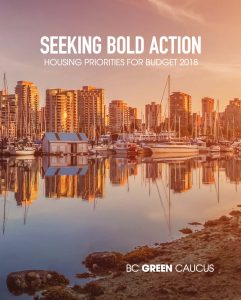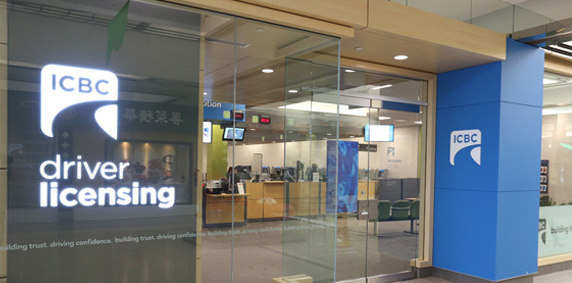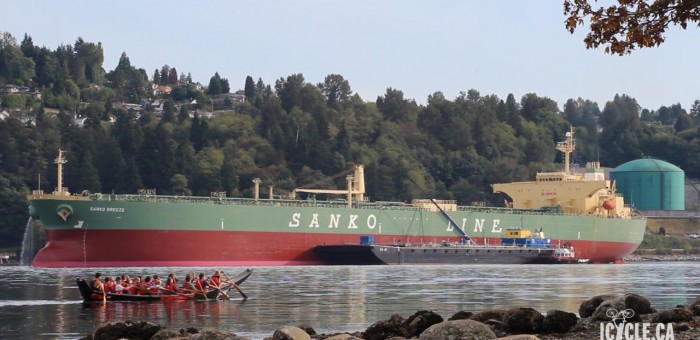Issues Blog
Welcoming the move to align Family Day with other jurisdictions
Today the BC government announced that in 2019, Family Day will move from the second to the third Monday in February. As noted in our press release, reproduced below, the BC Green Caucus wholeheartedly supports this change. In fact, I introduced a Private Member’s Bill in 2017 to do just this. We are thrilled that the BC NDP have supported this BC Green initiative.
The purpose of Family Day is to highlight the importance of family and to bring families together. This isn’t happening in B.C., with us observing family day a week earlier than all other provinces. Families spread out beyond B.C. aren’t able to be together. Federal employees and many who work in business are forced to work on Family Day since it is a business day everywhere else. In addition, Family Day in the rest of Canada coincides with President’s Day in the United States (a Federal holiday).
Media Release
Weaver welcomes move to align Family Day with other jurisdictions
For immediate release
February 9, 2018
VICTORIA, B.C. – Andrew Weaver, leader of the B.C. Green Party, welcomed the announcement that Family Day will be moved to the third Monday in February beginning in 2019. Weaver spearheaded this change, introducing a Private Member’s Bill on this issue in 2017.
“This change honours the spirit of Family Day by putting families first and aligning B.C. with the rest of North America,” said Weaver.
“The purpose of Family Day is to highlight the importance of family and to bring families together. The previous B.C. Liberal government’s choice of Family Day prevented this from happening in our province. Families spread out beyond B.C. aren’t able to be together. Federal employees and many who work in business are forced to work on Family Day since it is a business day everywhere else. I am heartened to know that families across B.C. will no longer face these barriers beginning in 2019.”
-30-
Media contact
Jillian Oliver, Press Secretary
+1 778-650-0597 | jillian.oliver@leg.bc.ca
Statement on Fair Wages Commission report
Today the British Columbia Fair Wages Commission released its first of two reports. The establishment of a Fair Wages was a key component of our Confidence and Supply Agreement with the BC NDP.
We are very pleased with the recommendations of the Commission as I outline in our release media release reproduced below
Media Release
Weaver statement on Fair Wages Commission report
For immediate release
February 8, 2018
VICTORIA, B.C. – Andrew Weaver, leader of the B.C. Green Party, issued the following statement in response to the Fair Wages Commission final report.
“We proposed the Fair Wages Commission with the goal of depoliticizing the process of setting minimum wage in B.C,” Weaver said.
“We support raising the minimum wage: ultimately, all British Columbians should have livable incomes. We know that our economy will be made even stronger when people can afford to live where they work, have adequate income and time to spend with their families and on their health, and have disposable income to help fuel local businesses.
“I am glad that a key recommendation of the report is to establish a permanent commission to keep politics out of minimum wage discussions, and I strongly urge the government to commit to this recommendation. This commission should be empowered with the explicit mandate of analyzing the impacts of minimum wage increases and recommending changes going forward based on evidence.
“It is essential that we ensure changes to the minimum wage are done within the broader context of the changing economy, and in a responsible way that minimizes adverse effects while maximizing benefits to British Columbians. As we move towards the goal of livable incomes for all British Columbians, we must put evidence first and proactively address the changes on the horizon. We look forward to working further with the government to explore innovative solutions, such as basic income, to the growing issues of precarious work and technological automation.”
-30-
Media contact
Jillian Oliver, Press Secretary
+1 778-650-0597 | jillian.oliver@leg.bc.ca
Responding to the BC Government’s announcement regarding changes to ICBC
Today the BC government announced sweeping changes to the ICBC claim process. Below I reproduce our response welcoming these changes.
Media Release
Weaver responds to ICBC changes
For immediate release
February 6, 2018
VICTORIA, B.C. – Andrew Weaver, leader of the B.C. Green Party, issued the following statement in response to the government’s changes to ICBC.
“I am encouraged that the government is putting British Columbians’ health outcomes at the centre of these policy changes,” said Weaver.
“These changes mean that a larger share of our public insurance funds will go directly towards helping British Columbians who suffer accidents recover from their injuries.
“A successful, affordable public insurance system requires government to act in the best interests of the people who participate in it. The B.C. Liberals betrayed the trust of British Columbians when they pillaged ICBC’s capital reserves, and ignored and concealed the evidence-based recommendations put forth by their own consultants. The mess left behind by the Liberals’ reckless fiscal mismanagement necessitates major changes, and I’m glad that the current government is taking this seriously.
“I look forward to seeing the proposed changes to the rate structures, but am encouraged that the Attorney General has signaled a move towards a fairer model that rewards good drivers while ensuring bad drivers pay their fair share based on risk.”
-30-
Media contact
Jillian Oliver, Press Secretary
+1 778-650-0597 | jillian.oliver@leg.bc.ca
Seeking bold action: BC Green caucus release housing priorities for Budget 2018
 Over the last few months my caucus colleagues, legislative staff and I undertook extensive research and consultation as we developed our housing policy priorities for input into the Budget 2018 consultation process. Today we released the results of our analysis during a press conference at the Creekside Community Centre in Vancouver. Entitled Seeking Bold Action: Housing Priorities for Budget 2018, our policies place an emphasis on curbing speculation and the role of global capital in our housing market.
Over the last few months my caucus colleagues, legislative staff and I undertook extensive research and consultation as we developed our housing policy priorities for input into the Budget 2018 consultation process. Today we released the results of our analysis during a press conference at the Creekside Community Centre in Vancouver. Entitled Seeking Bold Action: Housing Priorities for Budget 2018, our policies place an emphasis on curbing speculation and the role of global capital in our housing market.
The affordability crisis is devastating communities across our province. In particular, despite significant evidence of the role of speculation in driving up prices, successive governments have failed to act on the demand side.
In February the NDP Government will table their first full budget. They have a critical opportunity in front of them to take real action on housing affordability and protect the future for people of all ages and demographics in our cities.
Developing constructive solutions to the affordability crisis has been our top priority and we have already communicated our suggestions directly to government.
Below I reproduce my opening remarks at the press conference along with a copy of our press release.
Opening remarks
Today, I’m pleased to release a document outlining our priorities for action from this government on housing affordability.
In February the NDP Government will table their first full budget. They have a critical opportunity in front of them to take real action on housing affordability.
British Columbians have waited for action on this file from government for far too long.
People have watched as years of government inaction have allowed house prices to spiral out of control, as neighbourhoods empty and people are forced to make huge sacrifices to live in our cities.
This must not be allowed to continue. We need bold action now to tackle this crisis and make our cities vibrant, welcoming, and affordable.
Houses are not commodities – like gold or potash – which can be bought, sold, and traded exclusively for profit.
Homes are where people live, and they are the centre of our communities.
Yet our province is turning into a playground for the wealthy and our real estate a bank account for the wealthy.
Our cities have become a place for speculators to park their capital and reap huge returns, while ordinary British Columbians struggle to find a suitable place to live.
The skyrocketing price of real estate is precluding young people and families from buying homes in our cities.
Sky-high rents and near 0% vacancy levels in several communities are forcing renters to contend with huge competition, and to live in cramped and unaffordable accommodation.
As a result, young people are finding it increasingly difficult to see a future for themselves in our cities.
Small businesses in our cities are struggling to make rent, pay their property taxes and attract workers.
I’ve heard from many industries, especially our growing tech sector, that are struggling to attract and retain talent, because people can’t afford to live in our cities.
This is becoming a threat to our economy and must be fixed.
in January, an Insights West Survey found that 50% of British Columbians said that housing, homelessness and poverty was the #1 issue in BC. That’s up from 36% in August, and 14% in 2015.
Yesterday, a poll released by Angus Reid found that half of British Columbians want to see the housing market cooled. Just 14%, and just 1 in 5 existing homeowners, want to see prices continue to climb.
As part of our agreement with the NDP, we have the opportunity to share our priorities with them through budget consultations.
In this document, we summarize our input into the consultations and outline our priorities on housing affordability.
First and foremost, we want to see government take strong steps to curb speculation and restrict the impact of global capital on our housing market.
There is a great deal of evidence that foreign money is having a significant impact on our housing market, driving up prices well beyond what local incomes can afford.
Moreover, both global and domestic speculators are treating our houses as commodities to be bought, sold and traded exclusively for profit. They are reaping huge gains and pricing out people with average incomes who live and work in our cities.
But despite this, the provincial government has been hesitant to take action on global demand or on speculation. We think this needs to change with this budget.
When businesses can’t hire employees, when students are forced to shell out $800 a month to live in a tiny room, when our young people can’t see a future for themselves here, we need to realize that we are in an emergency.
Let’s take action to ensure that our houses are for homes first.
We believe that a crucial action government should take is to restrict the foreign purchasing of property in BC.
People who don’t live, work, and pay taxes here should be prohibited from purchasing existing property here. We can follow the lead of a number of other jurisdictions around the world, like New Zealand, that have done exactly this.
We also want to see government implement a speculators tax that targets absentee owners who own property in BC but do not pay adequate income taxes here. If the NDP does not pursue restrictions on foreign ownership, it is critically important that they include a speculator’s tax like this in this budget.
Government should levy a tax on flipping, to discourage the rapid flipping of property for profit, which drives up prices and adds no value to communities.
This government needs to take steps to protect the ALR from the impacts of speculation, including restricting the foreign ownership of ALR land and working with local governments to limit house sizes.
And we want to see loopholes closed that allow people to avoid paying taxes, including the bare trust loophole and ensuring that the foreign buyers tax applies to purchases of ALR land, partnerships, and pre-sales.
Our second priority is ensuring that we free up existing supply and ensure that new supply meets the needs of average British Columbians, not wealthy speculators.
A key part of achieving this goal is working with and empowering local governments to tackle the crisis, with the support of the province.
The province should work with local governments to regulate and restrict short-term rentals, to to encourage property owners to return units to the long-term rental supply.
The province should give all local governments the ability to tax empty homes, like they’ve done for the City of Vancouver, to discourage absentee ownership and raise revenues at the municipal level for housing initiatives.
And, the province should help local governments rethink zoning to increase the right kind of supply.
We also want to ensure that government deals with the impacts of the crisis on British Columbians in a responsible way, that does not put further inflationary effects on the market.
The irresponsible and risky BC HOME partnership should be repealed, and assistance to renters should be means-tested, streamlined and effective, to ensure help is going to those who need it most.
Finally, it is critical that government improve data collection and transparency, disseminate to support decision-making and to crack down on tax evasion and fraud.
To summarize
The scale of this crisis requires bold, decisive action if we are to make our cities livable and affordable.
Our cities should be places where people can afford to live where they work:
- where young people feel optimistic about their future;
- where small businesses thrive;
- And where neighbourhoods are vibrant and full of life.
This is the kind of society we should be building, and we will continue to pressure government to ensure that they deliver.
Thank you.
Media Release
Weaver releases B.C. Green Caucus housing policy priorities in Vancouver
For Immediate Release
January 31, 2018
VICTORIA, B.C. – Andrew Weaver, leader of the B.C. Green Party, released a summary of his Caucus’ housing policy priorities today in Vancouver. The Party’s Confidence and Supply Agreement with the B.C. NDP commits both parties to collaborate to make housing more affordable by increasing supply and dealing with the role of speculation and fraud. The policy document released today is a summary of the B.C. Green Caucus’ recommendations to government for the upcoming provincial budget.
“The affordability crisis is devastating communities across our province,” said Weaver. “In particular, despite significant evidence of the role of speculation in driving up prices, government has failed to act on the demand side. Our policies place an emphasis on curbing speculation and the role of global capital in our housing market.
“British Columbians have awaited action for far too long. It is time to move past rhetoric and get to work delivering solutions. We are putting forth realistic, evidence-based policies so that our consultations in this minority government are more transparent, and so that we can keep the pressure on government to take action.”
The measures the B.C. Green Caucus is urging government to implement include:
1. Curb speculation and the impact of global capital
- Restrict foreign purchasing of property
- Implement a speculators tax
- Implement a tax on flipping
- Close the bare trust loophole
- Close loopholes in the foreign buyers tax
- Implement ALR restrictions
2. Increase the supply of affordable housing
- Work with local governments to regulate and restrict short term rentals
- Give local governments the ability to tax empty homes
- Help local governments rethink zoning
3. Enhance financial stability for home-buyers and renters
- Eliminate the BC HOME partnership
- Instead of a universal “renters’ rebate”, provide means-tested support for renters
4. Improve transparency and data
- Collect more data on buyers and sellers of real estate
- Close loopholes enabling some investors to hide their identities
- Disseminate data more freely and regularly
“Everyday we are hearing stories from all corners of the province about the impact of this crisis, from young people forced to move out of province, to businesses who are struggling to pay rent and attract workers due to the cost of living,” added Adam Olsen, B.C. Green Party spokesperson for housing and municipal affairs.
“This is not healthy for our economy and it is not healthy for our communities. Our communities should be places where people from all walks of life can thrive. We will continue to push for bold action on this file so that we can ensure all of B.C.’s communities are vibrant, healthy and affordable.”
-30-
Media contact
Jillian Oliver, Press Secretary
+1 778-650-0597 | jillian.oliver@leg.bc.ca
Responding to government spill response measures
Today the BC Government announced its second phase of regulations to improve preparedness, response and recovery from potential spills. As part of this announcement, restrictions have been put in place to ensure that there will be no increased transport of diluted bitumen (dilbit) in British Columbia until the fate and behaviour of a dilbit spill is better understood scientifically and there is adequate ability to clean up such a spill.
My colleagues and I are very pleased with this announcement. Those who have been following developments on this file will know that I spent an enormous amount of time serving as an intervenor as part of the National Energy Board hearings on the Transmountain pipeline expansion. In fact, in December 2013, we called on the then BC Liberal government to impose a moratorium on dilbit transport on our coast due to the inadequacy of British Coumbia’s spill response and uncertainty in the scientific understanding of fate and behaviour of a dilbit spill. This was further emphasized in my final argument, oral testimony and open letter to Prime Minister Trudeau.
Below I reproduce the press release that we issued in support of the government’s announcement.
Media Release
Weaver responds to government spill response measures
For immediate release
January 30, 2018
VICTORIA, B.C. – Andrew Weaver, leader of the B.C. Green Party, responded today to Minister George Heyman’s announcement that the government is proposing additional measures to protect our environment and coastal waters from heavy oil spills.
“I am pleased to see Minister Heyman putting evidence and science front and centre in government decision-making where it belongs,” said Weaver.
“In particular, I welcome the independent scientific advisory panel that will be established to assess whether regulations can mitigate the impact of heavy oil spills in our precious coastal waters. Our coastal waters provide significant economic activity for our province and the entire country, be it from tourism, fishing or real estate, and are of great cultural significance to First Nations. It is essential that they be adequately protected.
“For several years my office participated extensively in the NEB hearing process for the TransMountain pipeline. We presented evidence from two independent expert assessments that validated our evidence by making it abundantly clear that we simply to not know enough to properly assess the risk and potential damages associated with a diluted bitumen spill in the Salish Sea.
“I look forward to the new panel providing complete, robust and accurate information on this matter to the Minister that reinforces what which we already know – that there is no way currently to adequately respond to a spill of diluted bitumen.
“Furthermore, I am pleased that the government will examine important issues like response times, geographically-specific response needs for our diverse province and compensation for loss of public and cultural use of land, resources or public amenities. B.C. has a rich history of sustainable natural resource development, but it must be done in a way that benefits British Columbians. We must ensure that we are not putting our economy and our communities at risk.”
Weaver was the only MLA to intervene as an individual in the National Energy Board hearings on the TransMountain pipeline expansion. His office was an active participant in the NEB hearing process and submitted a comprehensive report outlining major issues with the spill response regime. Adam Olsen, now Green Party MLA for Saanich North and the Islands, also intervened as a member of the Tsartlip First Nation.
-30-
Background:
The reports referenced above are:
- The Royal Society of Canada Expert Panel Report entitled: The Behaviour and Environmental Impact of Crude Oil Released in Aqueous Environments;
- The US National Academy of Science’s report entitled: Spills of Diluted Bitumen from Pipelines: A Comparative Study of Environmental Fate, Effects, and Response.
Media contact
Jillian Oliver, Press Secretary
+1 778-650-0597 | jillian.oliver@leg.bc.ca








